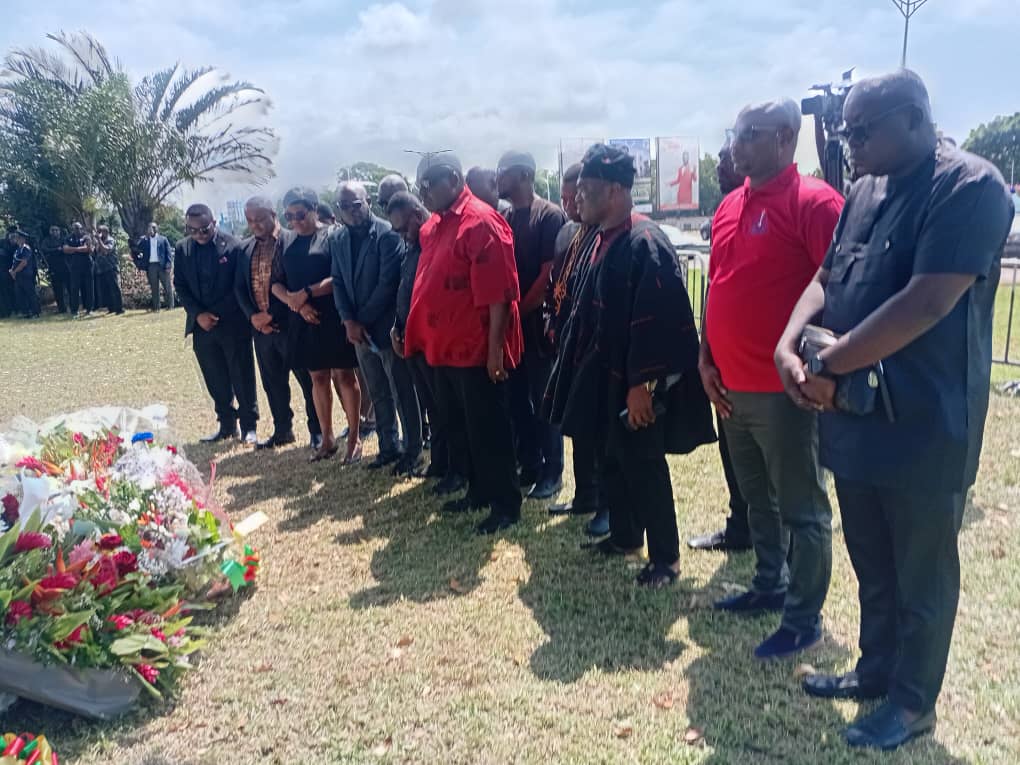
Picture yourself at a major industry conference, surrounded by potential collaborators, mentors, and clients. Yet despite the opportunities, most conversations never progress past “How’s business?” This frustration is nearly universal among professionals who recognise the importance of networking but struggle to move beyond surface-level exchanges.
After two days at a major industry conference, many professionals leave with nothing but a stack of business cards they’ll never follow up with. The difference between networking and relationship building isn’t just semantic; it’s strategic. While networking focuses on collecting contacts, relationship building creates lasting partnerships that drive business growth.
As business becomes increasingly relationship-driven, the ability to transform casual encounters into meaningful collaborations has become a critical competitive advantage. Here’s how to elevate your conversations from transactional exchanges to transformational relationships.
Research from Harvard Business Review reveals that 70% of senior executives attribute their success to relationships formed through authentic conversations, not formal presentations. Yet most professionals remain trapped in what experts call the “small talk spiral”: endless loops of weather discussions and job title exchanges that lead nowhere.
The difference lies in approach. Instead of delivering standard elevator pitches, successful networkers engage in genuine conversations about shared challenges and interests. One senior manager transformed a twenty-minute conversation about youth development at a charity fundraiser into a three-year partnership worth £2.4 million in shared programmes. The key was focusing on connection before commerce.
The C.O.R.E. framework for strategic conversations
Building meaningful business relationships requires a strategic approach. The following principles, drawn from established networking research, form the foundation of effective relationship building:
Curiosity: Approach every interaction with genuine interest in learning about the other person. Opportunity: Listen for mutual interests and potential collaboration points.
Reciprocity: Share your own experiences and offer value before asking for anything. Engagement: Follow through with concrete next steps and meaningful follow-up.
Putting these principles into practice requires mastering specific techniques at each stage of relationship building.
1. Igniting meaningful conversations beyond “What Do You Do?”
Replace standard networking questions with conversation catalysts that reveal deeper insights:
Instead of “What do you do?” try “What’s the most exciting project you’re working on right now?”
Instead of “How’s business?” try “What trends are you seeing in your industry that others might be missing?”
Instead of “Nice event, isn’t it?” try “What drew you to this particular event? Have you discovered anything surprising?”
Use your surroundings as natural conversation starters. At conferences, reference the keynote’s key points and ask for perspectives on industry direction. At industry mixers, acknowledge thoughtful questions asked during panels. At social events, comment on the venue’s atmosphere or unique features.
Reading the Room: Non-Verbal Intelligence
Your body language speaks before you do. Successful relationship builders maintain open posture with uncrossed arms, use appropriate eye contact in three to five second intervals, match the other person’s energy level, and create physical space for inclusion rather than forming closed circles.
2. Building trust
True listening involves three levels: hearing words and basic content, understanding meaning and emotion, and identifying values, motivations, and opportunities.
Practice the “Echo and Expand” technique. First, echo what you’ve heard: “So you’re saying that team leadership has been your biggest challenge this year.” Then expand with a follow-up question: “What specifically about that transition caught you off guard?”
Listen for these collaboration indicators: shared challenges where both parties struggle with similar issues, complementary strengths where one person’s expertise could address another’s challenge, aligned values around purpose-driven work or company culture, and similar aspirations for sustainable growth or market expansion.
Strategic vulnerability builds trust faster than any credential. Share challenges alongside successes. Mentioning early-career nervousness during important presentations, for instance, invites reciprocal sharing and creates emotional connection. This approach transforms professional exchanges into genuine dialogue.
3. Recognising the right moment
Look for conversation signals that indicate readiness for deeper discussion: enthusiastic responses and follow-up questions, natural back-and-forth dialogue, shared laughter or moments of connection, and expressions of mutual respect or admiration.
Instead of launching into sales pitches, weave your expertise naturally into the conversation. Rather than announcing “Well, at my company we specialise in…” try “That challenge you mentioned around team communication sounds familiar. We’ve actually developed some innovative solutions in that space. Perhaps there’s an opportunity to share insights?”
Use inclusive language that suggests partnership. Phrases like “It sounds like there could be synergy between our approaches,” “Perhaps we could explore this together,” and “Would you be open to continuing this conversation over coffee?” create collaborative rather than competitive dynamics.

4. The 48-Hour rule
Research shows that following up within 48 hours increases response rates by 60%. Your follow-up should include a personal reference to your specific conversation, value addition through relevant articles or useful resources, and a clear next step with specific meeting objectives.
An effective follow-up might read: “I really enjoyed our discussion about sustainable business practices at yesterday’s event. I thought you might find this Harvard Business Review article on team performance interesting, as it echoes many of the points you raised. I’d love to continue our conversation and share some strategies we’ve developed for similar challenges. Would you be available for a 30-minute coffee chat next week?”
Transform initial connections into lasting relationships through regular value sharing via quarterly insights or industry updates, strategic introductions by connecting contacts with relevant people in your network, collaborative opportunities through joint projects or speaking engagements, and personal touches by remembering individual details and following up on their goals.
Different sectors require tailored approaches. In technology, focus on innovation challenges and emerging trends. Healthcare professionals respond to discussions about patient outcomes and regulatory changes. Finance professionals engage with market dynamics and risk management topics. Professional services providers appreciate conversations about client relationship challenges and service delivery evolution.
Common Pitfalls and Recovery Strategies
The Monologue Trap: Speaking too much about yourself undermines relationship building. Use the 70/30 rule: listen 70% of the time, speak 30%.
The Interruption Habit: Cutting people off mid-sentence signals disrespect. Count to three after they finish speaking before responding.
The Follow-Up Failure: Not maintaining contact after initial meetings wastes networking investments. Create systems for tracking relationships and setting follow-up reminders.
The Pitch Slap: Turning every conversation into a sales opportunity repels potential partners. Focus on building relationships first; opportunities will naturally emerge.
Track these metrics to gauge relationship-building effectiveness: quality conversations per event, aiming for three to five meaningful exchanges rather than twenty surface interactions; follow-up response rates targeting 80% or higher; meetings scheduled from networking events with goals of one to two per event; partnerships or collaborations initiated on a quarterly basis; and referrals received from network connections.
The path forward
The journey from small talk to strategic partnership isn’t about perfecting scripts but developing authentic curiosity and creating genuine value for others. Every conversation represents an opportunity to build your brand through meaningful connection rather than self-promotion.
Your challenge is straightforward: at your next business event, implement one element from the C.O.R.E. Framework. Ask one deeper question, listen for one collaboration opportunity, share one vulnerable moment, and follow up with one person within 48 hours.
Strategic partnerships aren’t found in boardrooms; they’re born in genuine conversations between people who choose to see beyond the surface. The question isn’t whether your next conversation will lead somewhere meaningful. The question is: are you prepared to take it there?
The most successful professionals understand that relationships are built one authentic conversation at a time. Tability to forge genuine human connections has become not just valuable but essential for business success.
Whether you’re an established executive or emerging leader, mastering these conversation skills will differentiate you in competitive markets. The framework provided here offers a systematic approach to transforming every networking opportunity into a potential partnership.
Start with curiosity, listen for opportunities, offer reciprocal value, and maintain consistent engagement. These four principles will guide you from small talk to strategic relationships that advance both your career and your organisation’s objectives.
Are you ready for TRANSFORMATION?
Dzigbordi Kwaku-Dosoo is a Ghanaian multi-disciplinary Business Leader, Entrepreneur, Consultant, Certified High-Performance Coach (CHPC ) and global Speaker. She is the Founder and CEO of The DCG Consulting Group. She is the trusted coach to top executives, managers, teams, and entrepreneurs helping them reach their highest level of performance through the integration of technical skills with human (soft)skills for personal development and professional growth, a recipe for success she has perfected over the years. Her coaching, seminars and training has helped many organizations and individuals to transform their image and impact, elevate their engagement and establish networks leading to improved and inspired teams, growth and productivity.
) and global Speaker. She is the Founder and CEO of The DCG Consulting Group. She is the trusted coach to top executives, managers, teams, and entrepreneurs helping them reach their highest level of performance through the integration of technical skills with human (soft)skills for personal development and professional growth, a recipe for success she has perfected over the years. Her coaching, seminars and training has helped many organizations and individuals to transform their image and impact, elevate their engagement and establish networks leading to improved and inspired teams, growth and productivity.
The post Insights with Dzigbordi Kwaku-Dosoo: From small talk to strategic partnerships: Mastering conversations that build your brand appeared first on The Business & Financial Times.
Read Full Story















Facebook
Twitter
Pinterest
Instagram
Google+
YouTube
LinkedIn
RSS